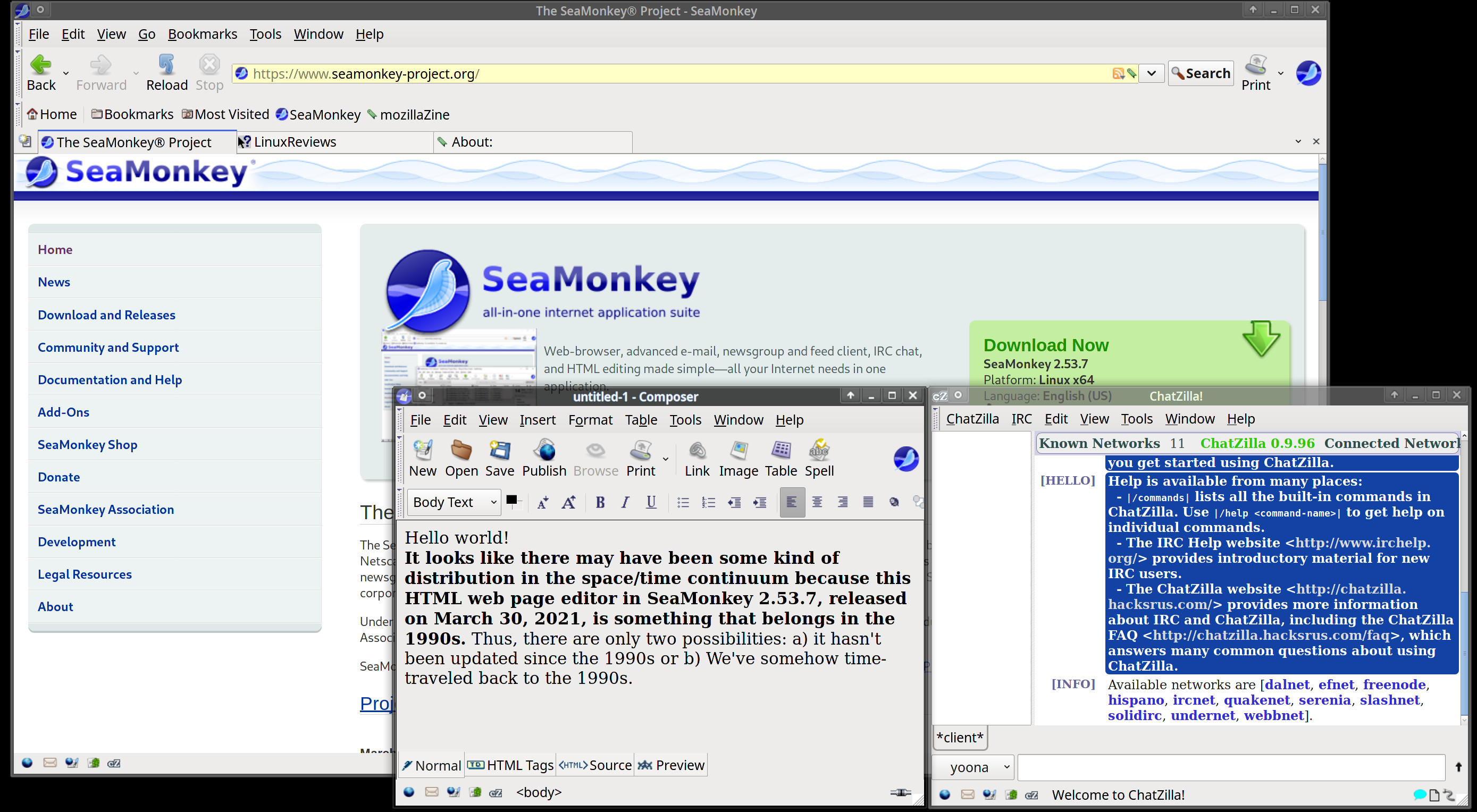
and that is coming 2017, starting with firefox 48 june'16.

xul+xpi is not to deparate - if xul dies xpi also. Palemoon and security, what's wrong with that ?Īnyway, I'm old fashioned and I prefer a browser that is not a 'suite', that is managable, easy to understand, that doesn't have a massive attack surface, that doesn't need to be updated all the time, and that doesn't require 'faith' in the 'non-profit' institution to allow it to do what it does, like phoning home and updating.īut I guess it is not 1998 anymore - firefox is currently using gecko engine and xul/xpcom as GUI - css for styling an xpi for extensions.

While I know more about security/computing than the average Joe, I'm not a 'techie'. Are you saying that seamonkey and palemoon won't work in the future/2017 ? same for seamonky and thunderbird as they are community driven projects.' 'servo engine is coming, XUL is close to death.' 'palemoon is using a complete other engine as firefox and people starts collection the xpi extensions because mozilla will remove them, firefox is no longer capable when xul is dropped after 2016 (beginning 2017). But that happened at least once with Seamonkey.
#Seamonkey web browsers install#
'that's the regular way for all browsers meanwhile, you cant avoid.' Not for all, as long as you don't install a new version of IE an update will usually not change the security settings. Short version, I looked at these browsers years ago and decided not to use them if possible. Either Chrome or Chromium transmites data to 'Google' by default, then there is the issue of the source code. It has been a long time since I studied that one. if anonymous then vpn.Ĭhrome/Chromium/Google, well I just don't trust Google products. so TOR is no option for me, in fact tor is pseudo and slow, files can be manipulated in some bad manner and you wont get it.

i use several (passive) methods to secure my system and a browser is only one brick, nothing special.
#Seamonkey web browsers windows#
So regular updates with filled security gaps is my first target - like i install windows updates. same for seamonky and thunderbird as they are community driven projects. Palemoon is using a complete other engine as firefox and people starts collection the xpi extensions because mozilla will remove them, firefox is no longer capable when xul is dropped after 2016 (beginning 2017). it also offers a hosts file usage from several sources - those sites are blocked by default. Webextensions are nearly same after june'2016 for all browser.Īgainst annoying ads and some filter options i use uBlock origin in all my browsers - i can transfer very easy settings from one to another and all will act same. Any recommendation to block ads and other unwanted 'stuff' ?Ĭlick to expand.why not? any special reason against?įirefox has upcoming changes and will be more like chrome after 2016, servo engine is coming, XUL is close to death. And as it has turned out, some (Ghostery?) ad blockers do some tracking of their own.īut maybe it is time to install one. For that, a modified HOSTS file seemed to work quite adequately.

Īlso, I have never used an ad blocker on any of my own systems. Just simple, safe, effective, secure, robust. Personally, I don't like frequent updates AND having to check the privacy/security settings of new versions. Preferably I wouldn't want a 'suite' product like Firefox. IE is pre-installed anyway, Seamonkey uses the Mozilla engine. I really don't want a Google/Chromium product/clone. A simple example of that is that it seems to remember stuff even if you configure it not to remember login data. Even if you tame it a bit, there are privacy issues. But not exactly ideal from a privacy perspective. User-friendly and convenient layout, sure. By now I have some experience with Firefox on Windows XP. What's not to like about Seamonkey ? Maybe it's the GUI/the way it works.


 0 kommentar(er)
0 kommentar(er)
